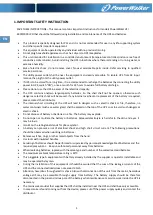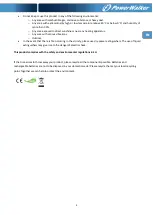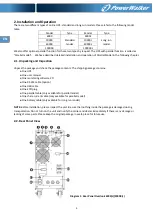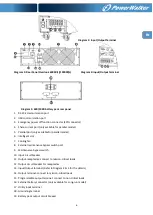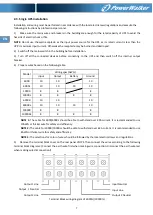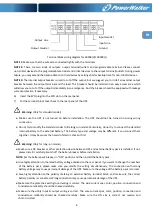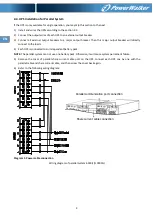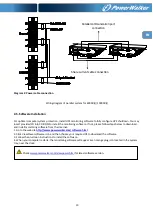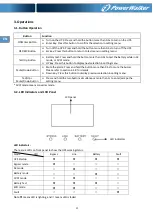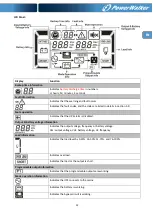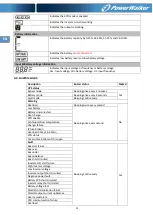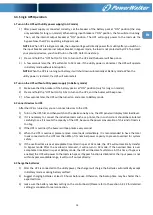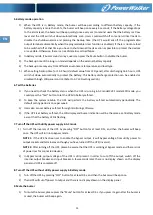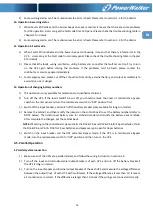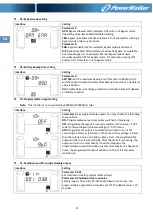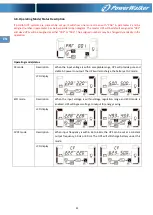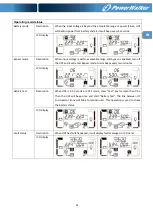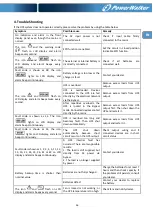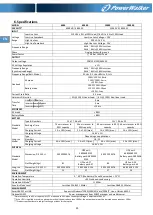
16
EN
2) Some warning alarms can’t be muted unless the error is fixed. Please refer to section 3-3 for the details.
10. Operation in warning status
1) When Fault LED flashes and the buzzer beeps once every second, it means that there are some problems
for UPS operation. Users can get the fault code from LCD panel. Please check the trouble shooting table in
chapter 4 for details.
2) Some warning alarms can’t be muted unless the error is fixed. Please refer to section 3-3 for the details.
11. Operation in Fault mode
1) When Fault LED illuminates and the buzzer beeps continuously, it means that there is a fatal error in the
UPS. Users can get the fault code from display panel. Please check the trouble shooting table in chapter
4 for details.
2) Please check the loads, wiring, ventilation, utility, battery and so on after the fault occurs. Don’t try to turn
on the UPS again before solving the problems. If the problems can’t be fixed, please contact the
distributor or service people immediately.
3) For emergency case, please cut off the connection from utility, external battery, and output immediately to
avoid more risk or danger.
12. Operation of changing battery numbers
1) This operation is only available for professional or qualified technicians.
2) Turn off the UPS. If the load couldn’t be cut off, you should remove the cover of maintenance bypass
switch on the rear panel and turn the maintenance switch to “BPS” position first.
3) Switch off the input breaker, and switch off the battery breaker (only available for long-run model).
4) Remove the cabinet, and then modify the jumper on the control board to set the battery numbers (refer to
NOTE below). Then disconnect battery wire for standard model and modify the battery pack carefully.
After complete the changes, put the cabinet back.
NOTE:
JP1 setting on the control board: please shorts the Pin5 & Pin6 and Pin7 & Pin8 for 20 pcs batteries; shorts
the Pin5 & Pin6 or Pin7 & Pin8 for 19 pcs batteries; and keeps every pin open for 18 pcs batteries.
5) Switch on the input breaker and the UPS will enter Bypass mode. If the UPS is in maintenance Bypass
mode, turn the maintenance switch to “UPS” position and then turn on the UPS.
3-5. Parallel Operation
1. Parallel system connection
1) Make sure all of the UPSs are parallel models, and follow the wiring instruction in section 2-3.
2) Turn off the input and internal/external output breakers of each UPS, and turn off the battery breaker if
the UPS is long-run model.
3) Turn on the input breaker and internal output breaker of the each UPS and measure the voltage difference
between the output line1 of each UPS with multimeter. If the voltage difference is less than 1V, it means
all connections are correct. If the difference is larger than 1V, check if the wirings are connected correctly.


